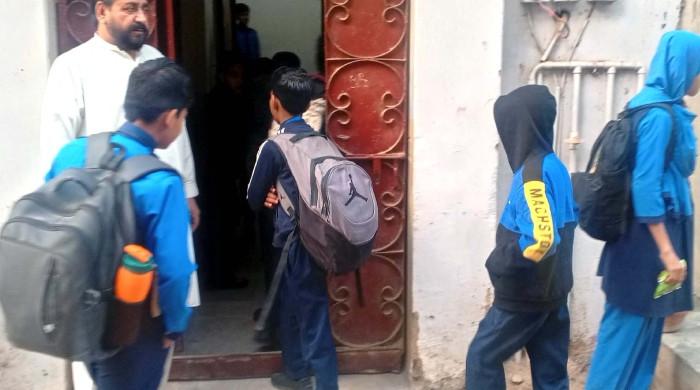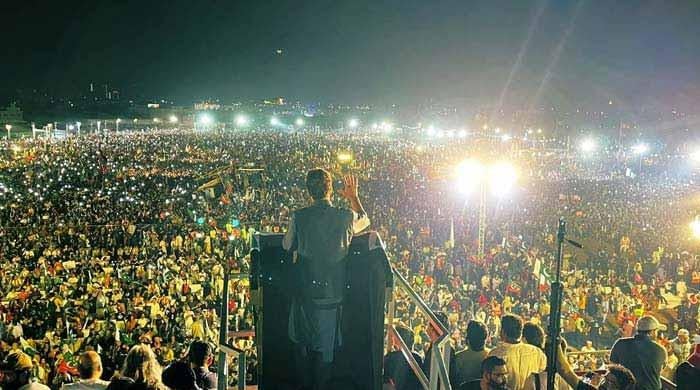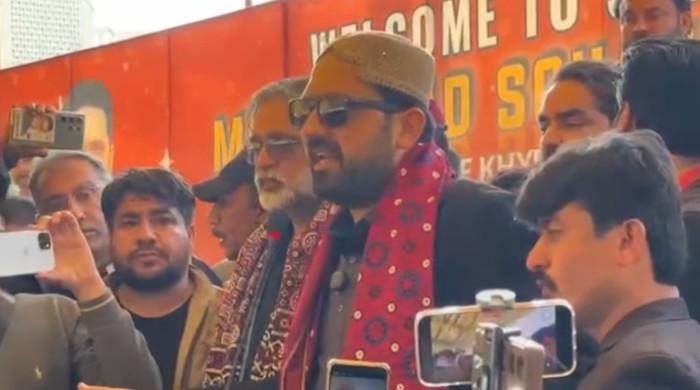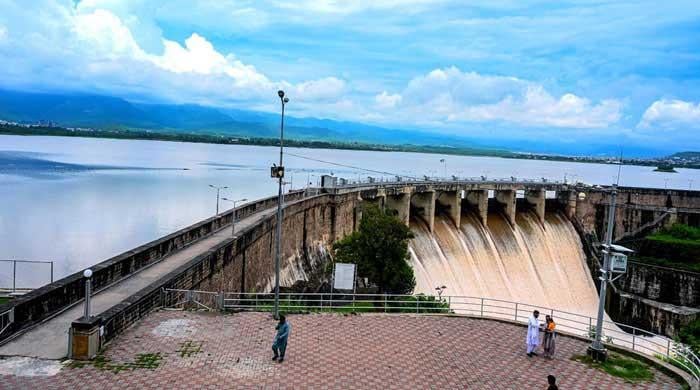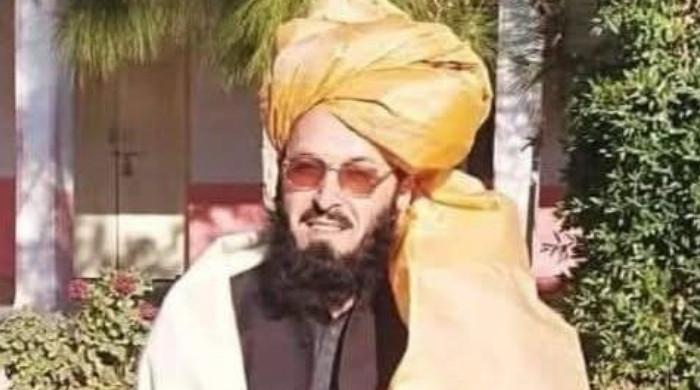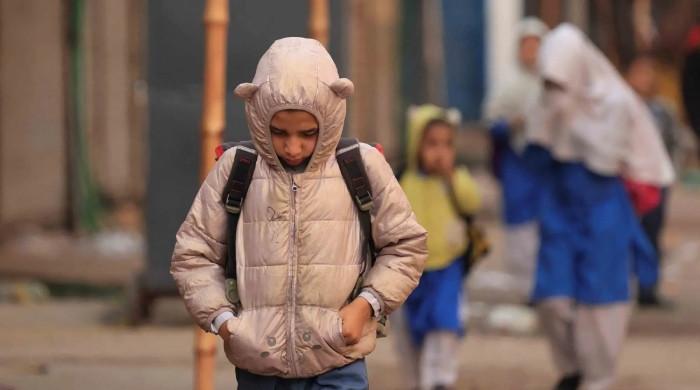Time 'to deliver on our joint commitments': Pompeo before leaving for India
'I’m hopeful that the foundation that we laid today will set the conditions for continued success as we start to move forward,' the US Secretary of State said
September 06, 2018
NUR KHAN AIRBASE, Rawalpindi: US Secretary of State Mike Pompeo said Wednesday evening it was time "to begin to deliver on our joint commitments" after having had discussions and agreements in the past that were not implemented upon.
Pompeo was speaking to journalists alongside General Joseph Dunford, the chairman of the US Joint Chiefs of Staff, and State Department spokesperson Heather Nauert, just before departing from Chaklala to New Delhi.
The State Secretary seemed satisfied about his visit to Islamabad, where he met Prime Minister Imran Khan, Foreign Minister Shah Mehmood Qureshi, and Chief of the Army Staff Gen Qamar Javed Bajwa, among other top-level officials. He said his trip succeeded in facilitating a chance to "reset" the bilateral relations now that the new government has come into power.
"We talked about their new government, the opportunity to reset the relationship between our two countries across a broad spectrum — economic and business and commercial," Pompeo said, adding that the United States desired improved ties in all aspects.
Washington wanted to resolve the Afghan conflict through a political solution, with talks, and not a military one, he noted, saying that the US also hopes that Pakistan would play an active role in its attempt to do so.
It is important to note that the change in Afghan policy came about after US President Donald Trump indicated that the US should pull out of its more-than-a-decade-long involvement in Kabul.
"…We need to do to try and develop a peaceful resolution in Afghanistan, which benefits certainly Afghanistan but also the United States and Pakistan.
"And I’m hopeful that the foundation that we laid today will set the conditions for continued success as we start to move forward," he stated.
To this, Gen Dunford, who said he was accompanying Pompeo to help in the effort of resetting the US-Pakistan relations, commented: "When we talked to General Bajwa on the military-to-military level, we agreed that — we listened to the prime minister very carefully, we listened to the Secretary very carefully."
The JCS chairman mentioned that the Pakistani leadership had agreed with the US that it was time to work on the mutual assurances given to each other.
"Their objectives were very consistent between the Secretary and the prime minister, and General Bajwa and I agreed that we will leverage the military-to-military relationship to support the Secretary and the prime minister, and more importantly, President Trump’s South Asia strategy."
When asked if they had secured "any firm commitments" or if Pakistan was "a reliable partner going forward", the State Secretary said: "The relationship — military-to-military — is one that has remained in a place where some of the other relationships haven’t."
The two countries do have "a long way to go, lots more discussion to be had", he said, adding that Islamabad has had "relationships, worked on lots of projects that are important together, and I hope we can use that as one of the foundational elements as well".
Noting that some prior deals and arrangements were not successfully executed, Pompeo said: "We need to begin to do things that will begin to actually — on the ground — deliver outcomes so that we can begin to build confidence and trust between the two countries.
"That was the focus of the gathering," he stated.
Further, in what seemed like another positive move, Gen Dunford, while responding to a question about the ground lines of communications (GLOCs), said: "We don’t have any reason to indicate that our cooperation in keeping the GLOCs open is going to change."
Atmosphere was entirely changed: Qureshi
Earlier in the day, after his meeting with the US officials, Qureshi had commented on how the talks had proceeded with the Pakistani top brass.
The 'ice' from the unbelievably cold US-Pakistan relations has melted, he noted after meeting Pompeo, and has paved way for discussion between the two strategic partners to recommence.
The foreign minister also mentioned that there was no emphasis on "do more" but collaboration in working towards common goals was underscored, as well as a focus on avoiding a military solution in Kabul.
The arrival of the State Secretary and JCS chairman was uniquely timed, especially in light of the turbulent bilateral ties and the Trump administration's on-and-off calls to "do more" and "no more".
While the linkages have historically had their ups and downs, Qureshi had commented earlier that Islamabad hoped to take forward the two-way ties in light of the mutual respect.
Mattis joins Pompeo in India
Subsequently, they, along with their four-member delegation, left for New Delhi, where, a few hours later, they were welcomed by Sushma Swaraj, India's minister of external affairs, at the Indira Gandhi International Airport.
US Secretary of Defense Jim Mattis, however, joined Pompeo in India for today's two-plus-two talk, where they two states' leaders will discuss improving links between the Indian Army and the US Central Command.
Mattis and Pompeo are also expected to bring up to the discussion the issue of New Delhi's purchases of Russian missile defence systems and oil exports from Iran.




